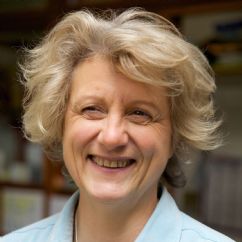Bryanston Sixth formers respond to Black History Month
In our latest blog post, we hear from five of our sixth form pupils about what Black History Month means to them and wha...
Read MoreContinuing on from her blog last week on pressures on parenting, Edrys Barkham looks this week at how we can all help our children develop the life skills and resilience for a happy and successful adult life.
 This week I look at how, in our aspirations to bring up our children safely and educate them for the future, we may be losing valuable opportunities for them to develop some of those important, but less easily measured, life skills, such as creativity, sociability and emotional resilience. If every hour of a child’s life is structured, that child might be busily engaged and learn a wide range of facts, but they may be missing out on their emotional development. Watching the recent Channel 4 series Child Genius suggests that minutely managing their learning doesn’t actually make them happier children.
This week I look at how, in our aspirations to bring up our children safely and educate them for the future, we may be losing valuable opportunities for them to develop some of those important, but less easily measured, life skills, such as creativity, sociability and emotional resilience. If every hour of a child’s life is structured, that child might be busily engaged and learn a wide range of facts, but they may be missing out on their emotional development. Watching the recent Channel 4 series Child Genius suggests that minutely managing their learning doesn’t actually make them happier children.
In addition, stories in the media can make parents increasingly fearful about leaving their children unsupervised to play. Children pick up on these concerns and they can become afraid of challenge and develop a risk adverse approach to life as a result. Whilst it is essential to ensure that children are not put at unnecessary risk, it is important that they get the opportunities to develop a sense of freedom and responsible risk-taking. When toddlers learn to walk we make their environment as safe as possible but don’t stop them walking to avoid them falling over. When they inevitably do, we pick them up, rub their knees and set them off again. They learn through trial and error and rapidly gain confidence in taking steps towards their independence.
Around puberty another developmental milestone happens: the brain undergoes changes in preparation for adulthood. The changes disrupt executive function, so a teenager’s ability to plan, organise and prioritise is disturbed and they tend to take more risks, whilst lacking the ability to predict the outcomes of their actions. To acquire the executive function skills required for adult life they need to learn how to judge risk and to have the chance to put things right when they have gone wrong. These are important life skills that lead to the development of resilience and emotional robustness. It is important to provide opportunities that allow teenagers to explore their own limits and venture outside their comfort zone safely. At Bryanston these opportunities include the sports facilities, the outdoor education programme, Duke of Edinburgh Award and the wide range of extra-curricular activities, among other things. These activities are closely monitored and houseparents, tutors, teachers, matrons and other staff are around to step in and offer guidance and advice to get things back on track when pupils start to struggle. These timely interventions help to show pupils how to correct a situation and move on and, in so doing, develop the emotional resilience that will help them on their way to a successful and happy adult life.
Judith Carlisle, Head at Oxford High School for Girls, recently said that children learn more when they don’t get it right and that it is important to teach pupils to manage failure. By contrast, the recent government obsession with international PISA results is leading to policies of measuring children’s academic performance in a way that makes it appear the only value of a child is their academic grades. There is a danger that children, from an early age, learn to be fearful of making a mistake and there are children who prefer to say or write nothing for fear of getting an answer wrong.
Psychological research suggests learning through trial and error helps children realise they can improve. They understand that a wrong answer is not a failure, it is a step in the right direction. Reflecting on what went wrong with a teacher or peer can help a child learn more effectively than they can by just being indoctrinated with a series of correct answers. Through conversations with teachers, like the tutorials and correction periods we have at Bryanston, pupils can understand that they learn a great deal from having the courage to have a go, even if the outcome is not wholly correct. By discussing what went well and what didn’t, they learn how to put things right and how to avoid making the same mistake in the future, in both the academic and the pastoral areas of school life.
We believe our educational approach of encouraging curricular and extra-curricular breadth allows children to discover their whole range of talents; recognising their hard work and effort in all areas of the school helps children understand that they are valued for who they are rather than what they can achieve. We acknowledge that children realising their academic potential with us is important, but the education of the whole child is more valuable still, so that well rounded, confident and resilient young adults leave us at the end of their school days to become successful, well motivated and productive members of society.